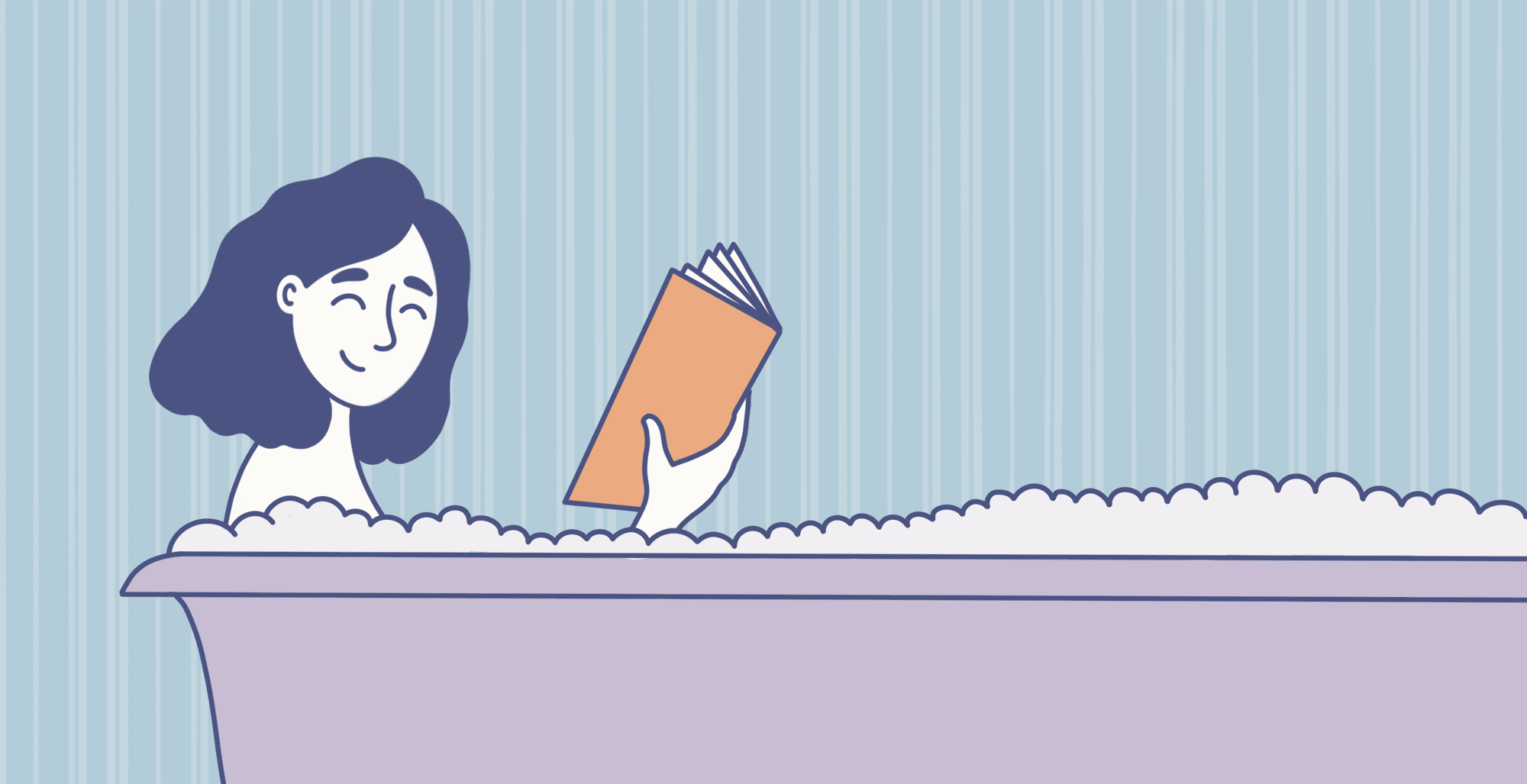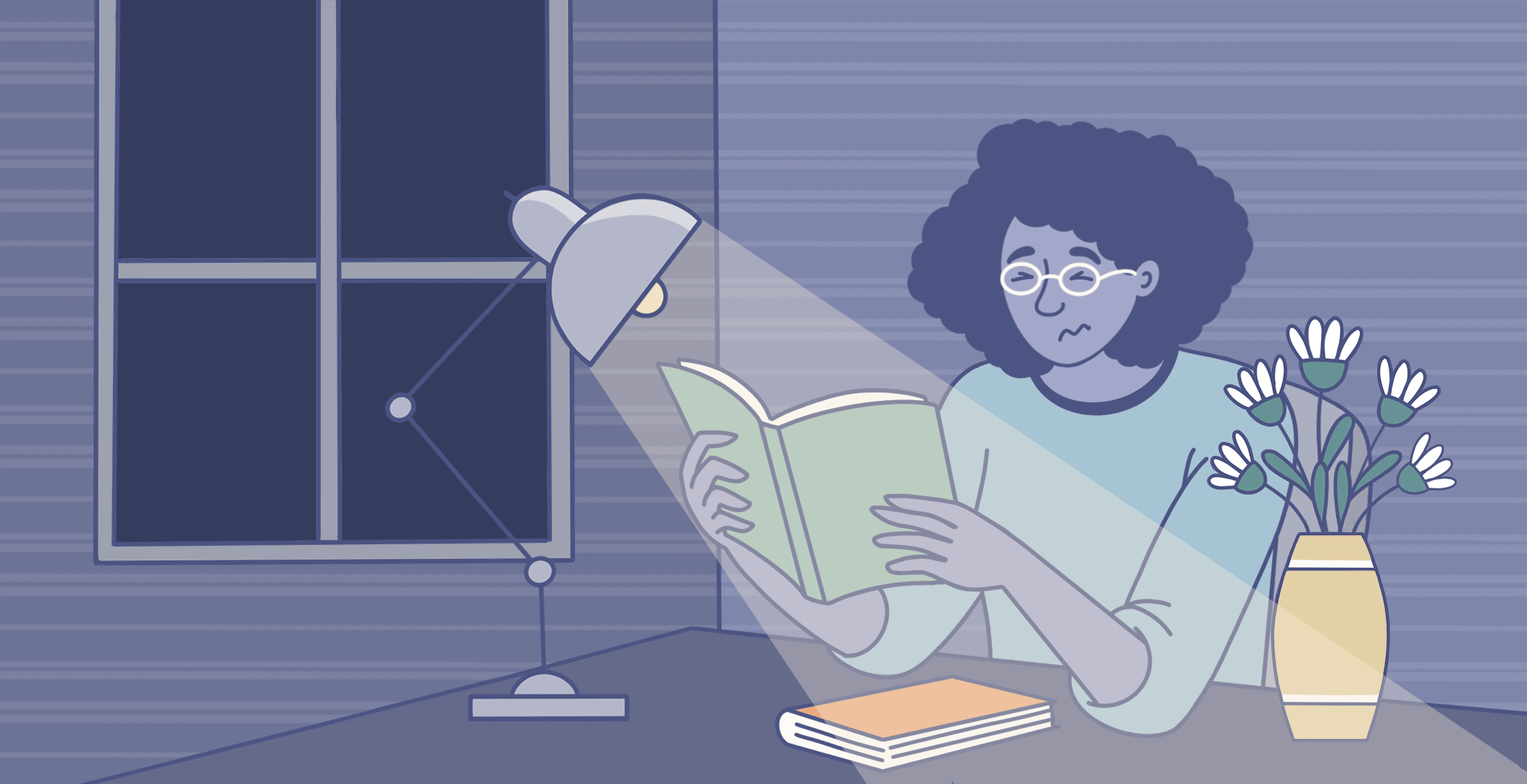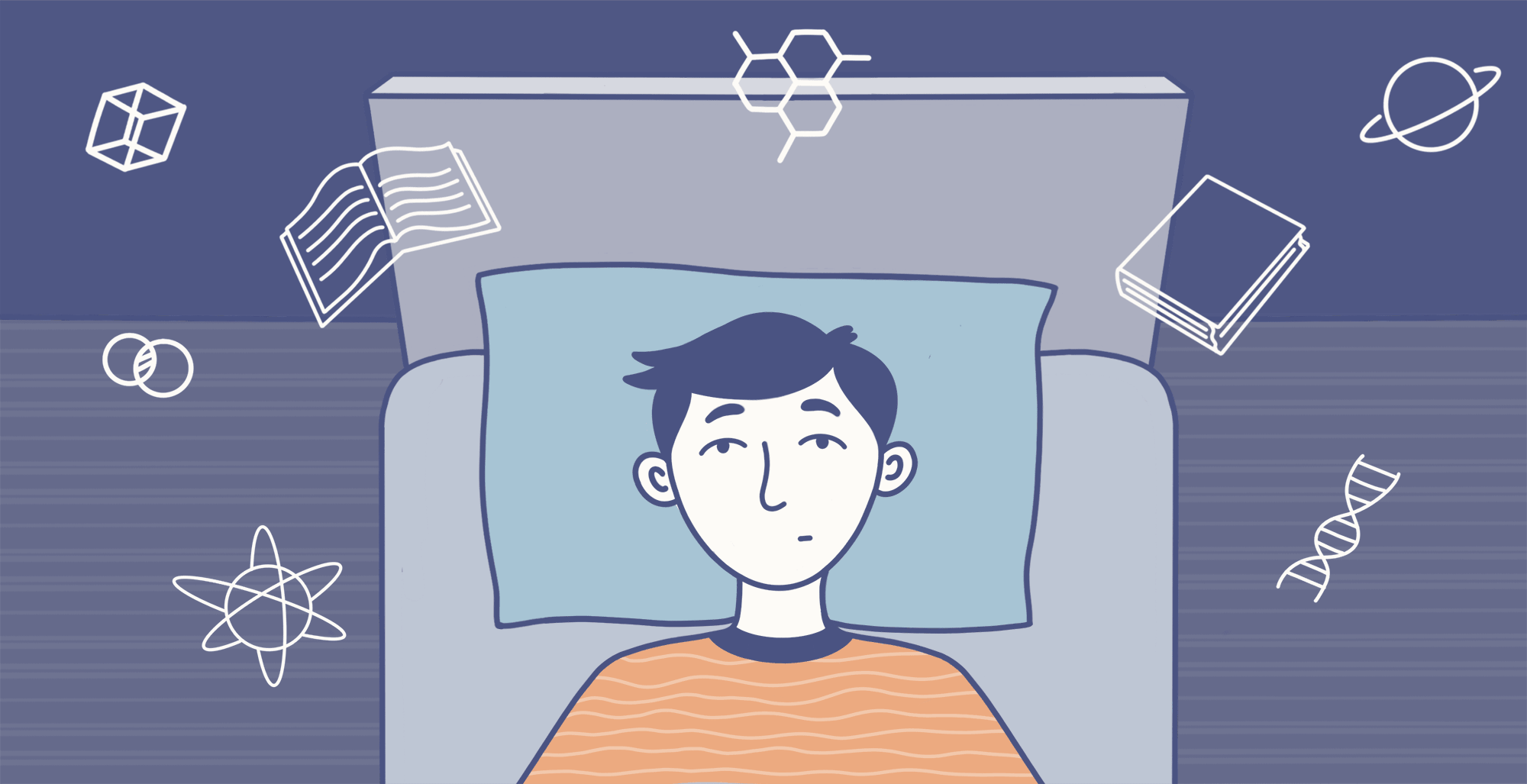There’s no doubt about it — college can be stressful. Gone are the days when your routine is predictable and calm. Now, you’re navigating sporadic schedules, packed lecture halls, and thousands of new faces. And while these days often feel inspiring and exciting, they can also bring anxiety and insomnia.
Quality sleep has numerous health benefits, but without it, grades and mental health can both suffer. If you’re struggling with navigating stress and sleep in college, don’t worry! We spoke with an expert who has loads of sleep tips for college students.
Tips for Managing Stress and Anxiety in College
To help students navigate the intricacies of stress and sleep in college, we spoke with Dr. Fogleman, a licensed psychologist at Juniper Psychological Services. As a resident of Atlanta, Georgia, he regularly works with college students and knows the struggles they face on a day-to-day basis. He offered some of his professional advice for getting some much-needed sleep.
Create a consistent sleep schedule. College can completely disrupt your typical routine. Without a predictable schedule, quality sleep is hard to catch.
If you have bad sleep habits, Dr. Fogleman recommends you plan your rest like you plan your classes. Think about when you want to go to sleep and when you want to wake up.
Of course, it’s often difficult to prioritize your sleep patterns in college. To help with this, Dr. Fogleman suggests you “think of it as something to look forward to.” Quality sleep can make you feel happier and more creative. If you focus on the numerous health benefits, you’re more likely to set aside eight hours for deep sleep.
Only use your bed for sleeping. We know it’s tempting to have a study session beneath the comforter, but this can disturb your sleep in the long run. According to Dr. Fogleman, “the body starts to associate being on the bed with, not only being awake but being keyed up.”
Create strict boundaries between where you work and where you rest. Just like you feel a boost of focus from working inside a coffee shop, you should start to feel drowsy the moment your head hits the pillow.
Can’t fall asleep within 20 minutes? Get out of bed and reset. This advice may feel counterintuitive at first. When you’re tossing and turning at night, the last thing you want to do is abandon your search for those much-needed ZZs.
However, the more time you spend under the covers worrying about your term paper, the more your brain starts to associate your bed with being awake.
If you’re spending more than 20 minutes trying to fall asleep, Dr. Fogleman recommends getting out of bed and breaking the cycle. Take a soothing bubble or read a boring book. That way, when you do nestle under the covers again, you can easily drift into dreamland.
RELATED: Best Mattresses for College Students
Let go of the stigma. College brings many thrilling experiences, but Dr. Fogleman said “there’s a lot of grief and loss in there too.” If you’re feeling anxious or depressed, it’s likely your colleagues are too. Opening up about your psychological stress can feel vulnerable and scary at first, but it can also create a sense of community.
The Importance of Sleep in College
Everyone needs quality sleep, but when you’re juggling difficult classes and mountains of homework, it becomes especially important. Read on to learn more about how sleep impacts university students’ health, grades, and mood.
RELATED: Could Dorm Mattress Quality Be A Cause Of Sleep Deprivation in College Students?
Sleep and Academic Performance
Sleep deprivation doesn’t just make students feel sluggish. It can also have a significant impact on grades. Researchers Dr. Monica E. Hartmann and Dr. Roxanne Prichard concluded that lack of sleep can harm academic performance as much as binge drinking and drug use does. For every night a student had disturbed sleep, their GPA dropped by an average of .02 points. Lack of sleep also correlated with the probability of students dropping a course.
If you regularly get eight hours of sleep, you may see your GPA improve. According to a 2019 MIT study, there is a significant correlation between quality sleep and good grades. However, students couldn’t just get one night of deep sleep before a test — they needed several good nights of sleep in a row in order to see their grades get higher.
Sleep and Physical Health
In addition to hindering your GPA, sleep deprivation can cause numerous health problems. Researchers at the National Institutes of Health found restricted sleep can alter endocannabinoid levels, the chemical signals that affect appetite. Researchers believe this could be the reason we see a correlation between sleep deprivation and obesity.
College campuses continually educate students about the dangers of binge drinking, but the issues may be bigger than most people realize. According to the National Institute on Drug Abuse, sleep deprivation may lead to continued drinking and drug use. With insufficient sleep, some people may not develop the coping skills to recover from addiction.
Sleep and Mental Health
When the alarm jolts you out of a deep slumber, you probably feel annoyed. But if you wake up after only a few hours of sleep, you may feel sad and angry for the rest of the day. A 1997 study found that, when only getting about 5 hours of sleep per night, people felt greater mood disturbance throughout the week.
For young adults, moodiness may be more severe. According to the Journal of Sleep Research’s study, sleep-deprived people between 18 and 30 years old experienced greater mood disturbance than those between the ages of 60 and 72.
Oftentimes, insomnia can lead to not just moodiness, but overwhelming anxiety. A good night’s sleep fosters emotional well-being, and when it’s interrupted, you may be more likely to ruminate on negative thoughts. Of course, the relationship between stress and insomnia isn’t always clear. A survey from Mental Health America found that ⅔ of Americans say stress causes them to lose sleep.
Stress and Sleep – A Two-Way Street
Solving stress and sleep problems isn’t always easy. Sometimes, the issues can feed into each other. Let’s take closer look at the relationship between anxiety and insomnia.
How Stress Impacts Our Sleep
As the pressures of academic life grow, university students carry the burden. High levels of stress can lead to increased adrenaline and cortisol levels, which can disrupt sleep cycles. This not only causes people to restlessly toss and turn at night – it can also cause nightmares.
While it may feel tempting to soothe your nerves with alcohol, this can negatively impact your overall sleep quality. You may fall asleep quickly after drinking a few beers, but you’re less likely to sink into the deep stages of sleep.
How Lack Of Sleep Can Exacerbate Stress
With lack of sleep also comes decreased focus and low confidence. This can lead to poor grades and social isolation, which also contributes to stress. If you find yourself in this vicious cycle, it’s important to assess the root cause of your sleep issues and create a plan to fix them.
When To Seek Further Help?
It’s common to experience stress every now and then, but if it gets severe, you may want to consult a therapist. Dr. Fogleman urges students to check in with their emotions and their bodies because stress can manifest in many ways. Some people experience chest pain, appetite changes, and muscle tension. Others withdraw from social situations and hide away from friends.
If you still aren’t sure how your anxiety is affecting you, check in with a trusted friend for feedback. This can also foster a sense of community and alleviate the stigma associated with anxiety and depression.
However, it’s important to remember that it’s not necessary to wait until your symptoms become unbearable. Therapy can benefit students in all phases of their college careers.
If you’re not struggling with anxiety or depression, there may be another root to your sleep problems. If your legs feel restless at night, you occasionally sleepwalk, or you have trouble breathing when you’re asleep, you may benefit from a thorough sleep study.




